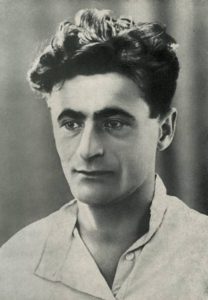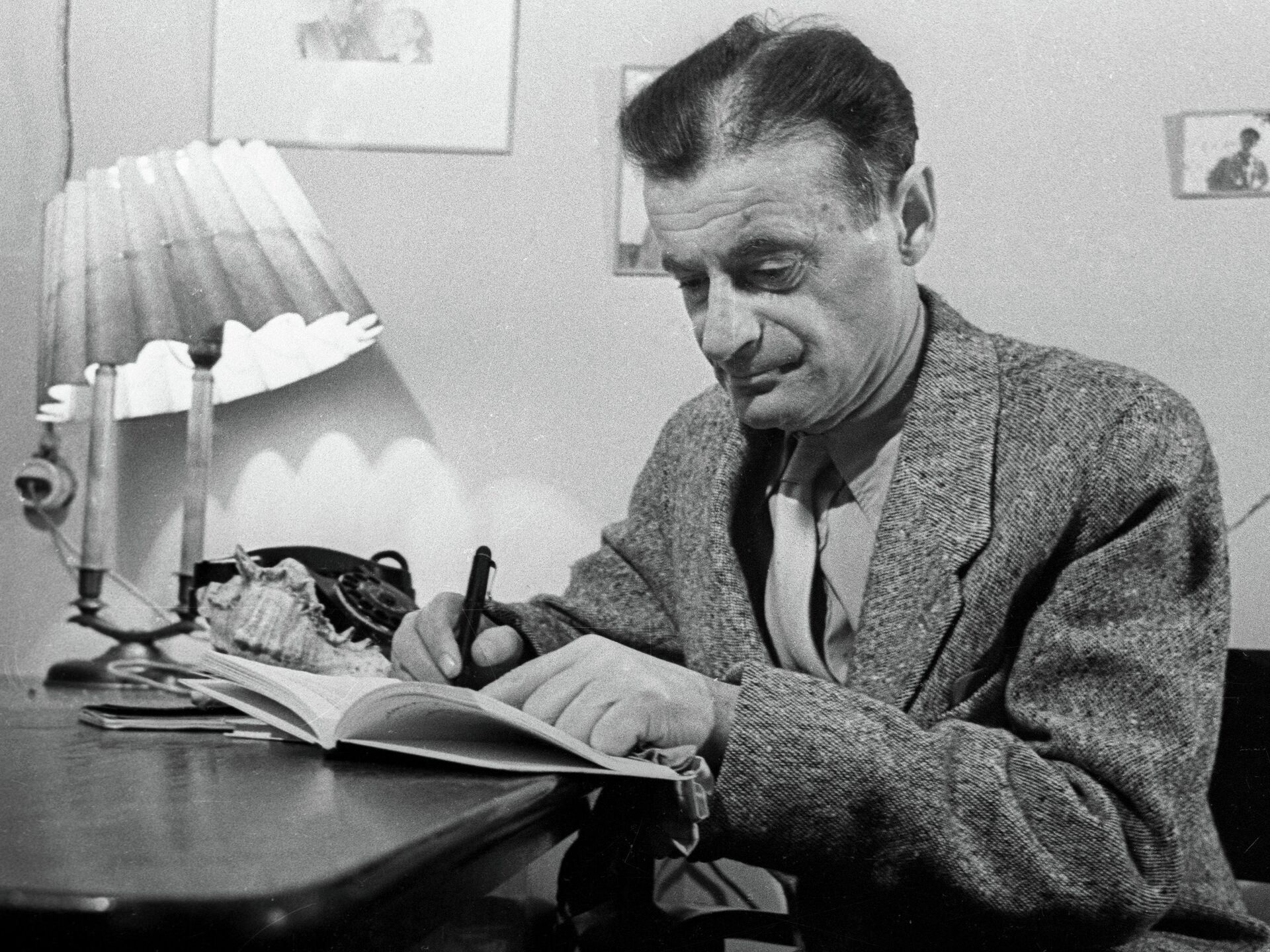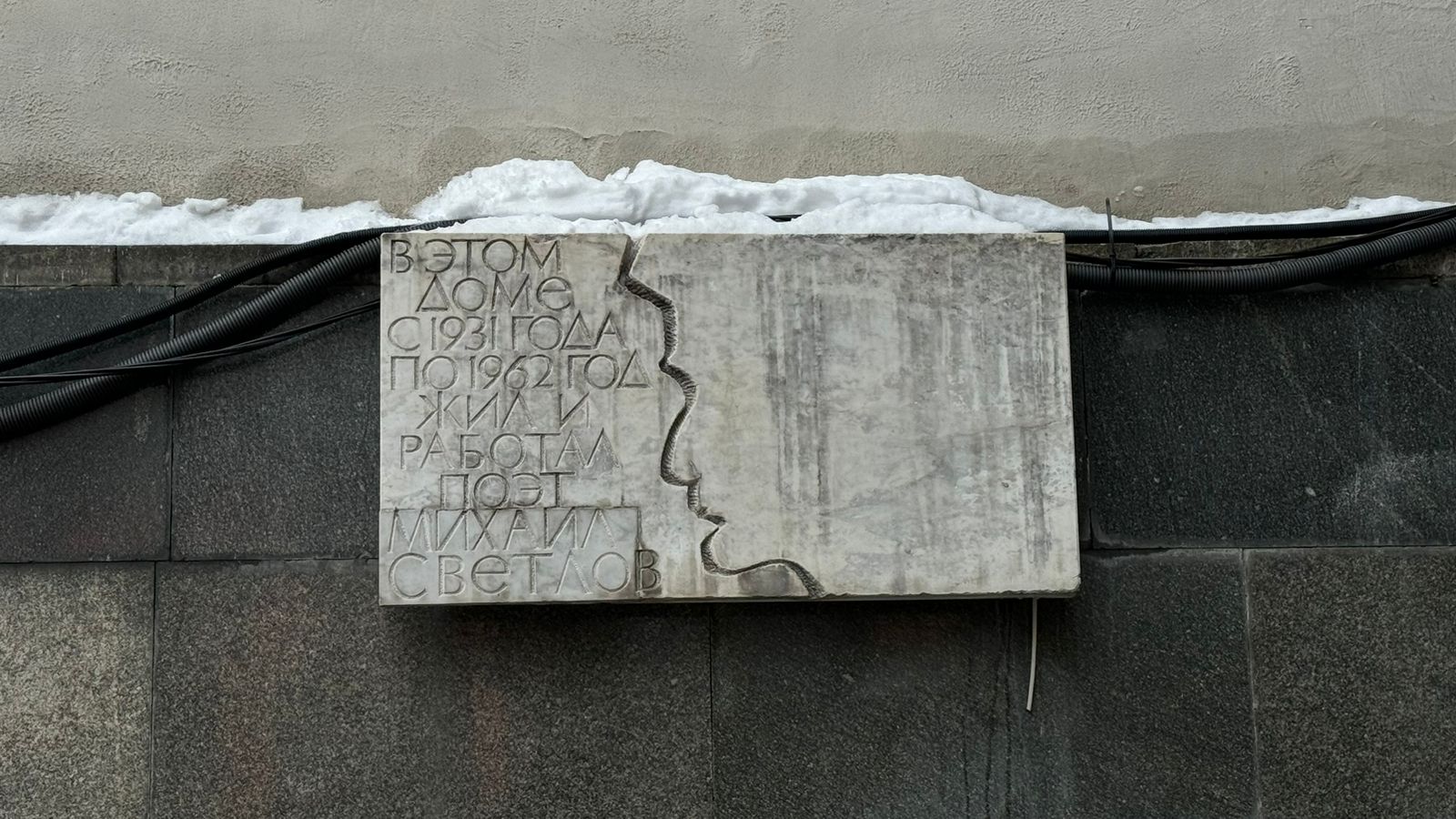Mikhail Arkadyevich
Svetlov
1903-1964

Mikhail Arkadyevich Svetlov was a Russian and Soviet poet and playwright who became one of the most prominent representatives of the “Komsomol poets” and an idol of a generation. His poems were often quoted, and songs written on his words became folk. Svetlov was born in Yekaterinoslav on June 17, 1903. In 1917, after finishing elementary school, his first poem was published, and he joined the Red Army as a volunteer. In 1921, he moved to Kharkov and became the editor of Young Proletarian magazine. There, his first collection of poems, Rails, was published. In 1922, Svetlov went to Moscow to continue his education. He studied at the Labour Faculty, then at the Literary Faculty of Moscow University, and at Higher Literary and Art Institute named after V.Y. Bryusov. During these years, Mikhail Svetlov published several collections of poetry, including “Poems”, “Roots”, “Night Meetings” and “Book of Poems”. These collections often featured themes of heroism and romanticism associated with the Civil War. In 1926, he wrote the famous poem “Grenada” which brought him widespread recognition. Many songs were also composed to the words of his poems. Svetlov was also known for his translations, teaching activities at Literary Institute, and writing plays. One of his most notable works from the 1930s was the poem “Kakhovka”, which later became a popular song. During the Great Patriotic War, Mikhail Svetlov served as a correspondent for publications on the front lines. His works from this period, including the poems “The Italian” and “Twenty-Eight”, have since become iconic. Additionally, he wrote a play titled “The Brandenburg Gate” based on his experiences during the war. After the war, Svetlov continued to publish collections such as “Horizon”, “Hunting Lodge”, and “Poems of Recent Years”. These later works show a shift in his style, moving away from romantic themes and towards a more natural, conversational approach. For the book “Poems of Recent Years”, Svetlov was posthumously awarded the Lenin Prize. His last works include the plays “Someone Else’s Happiness” (1953), “Happy New Year” (1956) and “Love for Three Oranges” (1964), which he did not have the chance to finish. In the name of Svetlov, steamships, mines, streets, libraries and even a memorial plaque have been named, and in Moscow, there is a plaque in his honour at the “House of Writers’ Cooperative”, where he lived.
Address: Moscow, Kamergersky lane, 2

